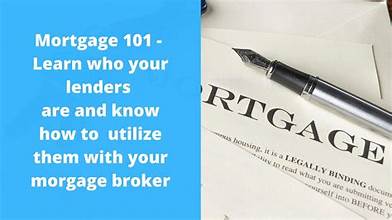Buying a home is a significant milestone, and for most people, it involves securing a mortgage. Mortgages can be complex and daunting, especially for first-time homebuyers. However, understanding the basics of mortgages is crucial to making informed decisions about one of the most significant financial commitments in your life. In this guide, we’ll break down the key components of mortgages, providing you with the knowledge to navigate the process confidently.
1. Understanding the Basics
a. What is a Mortgage?
A mortgage is a loan that allows you to buy a home. It consists of a principal amount, which is the actual loan amount, and an interest rate, which is the cost of borrowing. Mortgages typically have a term, such as 15 or 30 years, during which you make regular payments to pay off the loan.
b. Types of Mortgages
There are various types of mortgages, including fixed-rate and adjustable-rate mortgages. Fixed-rate mortgages have a constant interest rate throughout the loan term, providing predictability. Adjustable-rate mortgages, on the other hand, have interest rates that can change over time, often based on market conditions.
2. Mortgage Preapproval
Before you start house hunting, it’s advisable to get preapproved for a mortgage. This involves a lender reviewing your financial information to determine how much you can borrow. Preapproval not only helps you understand your budget but also makes you a more attractive buyer to sellers.
3. Interest Rates and Terms
a. Interest Rates
The interest rate on your mortgage significantly impacts your monthly payments and the total cost of your loan. Factors such as your credit score, market conditions, and the type of loan influence the interest rate you receive.
b. Loan Terms
The loan term, or the length of time to repay the mortgage, is another crucial factor. Shorter terms often have higher monthly payments but lower overall interest costs. Longer terms result in lower monthly payments but may accrue more interest over time.
4. Down Payments and Closing Costs
a. Down Payments
Most lenders require a down payment, which is a percentage of the home’s purchase price. The size of the down payment affects your loan amount and may impact your interest rate. Saving for a substantial down payment can be a wise financial move.
b. Closing Costs
In addition to the down payment, homebuyers should be aware of closing costs. These include fees for services such as appraisals, inspections, and legal services. It’s essential to factor these costs into your budget when planning to buy a home.
5. Credit Scores and Mortgage Approval
Your credit score plays a pivotal role in the mortgage approval process. Lenders use it to assess your creditworthiness. A higher credit score can lead to better interest rates and more favorable loan terms. Regularly checking and improving your credit score before applying for a mortgage is advisable.
6. Choosing the Right Lender
Selecting the right lender is crucial. Shop around for competitive interest rates and favorable terms. Consider the lender’s reputation for customer service and their responsiveness throughout the mortgage process.
7. The Application Process
Once you’ve chosen a lender, you’ll need to complete a mortgage application. Be prepared to provide detailed financial information, including income, assets, and debts. The lender will use this information to assess your eligibility for a mortgage.
8. The Role of Mortgage Brokers
Mortgage brokers act as intermediaries between borrowers and lenders. They can help you navigate the mortgage market, comparing loan options from different lenders. While brokers can be valuable, it’s crucial to understand their fees and ensure they are acting in your best interest.
9. Loan Documents and Disclosures
Before closing on your home, you’ll receive various loan documents and disclosures. Take the time to read and understand these documents thoroughly. If you have questions, don’t hesitate to ask your lender for clarification.
10. Closing on Your Home
The closing is the final step in the homebuying process. During the closing, you’ll sign the necessary documents to transfer ownership of the property. Be prepared for closing costs, and ensure you have the funds available to complete the transaction.
Conclusion
Learning about mortgages is a crucial step in the journey to homeownership. By understanding the basics, getting preapproved, and navigating the application process, you can make informed decisions that align with your financial goals. Remember, each homebuyer’s situation is unique, so take the time to explore the options that best suit your needs and budget. With the right knowledge and preparation, you can confidently embark on the path to securing a mortgage and fulfilling your homeownership dreams.
Thank You : dobest4you




